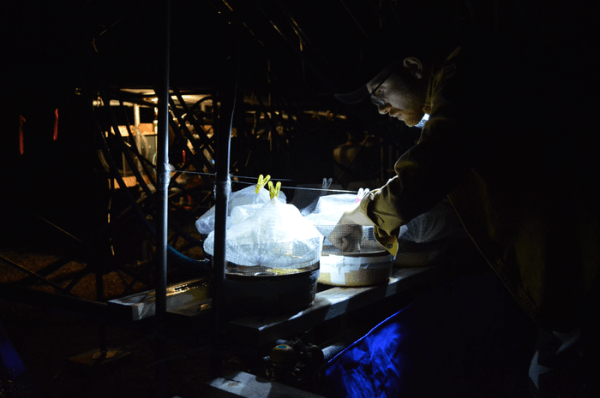Predator species may buffer the negative impacts of climate change by mitigating against the loss of biodiversity, according to new research led by scientists in Trinity College Dublin and Hokkaido University.
The team of scientists behind the discovery say their findings underline the importance of conserving biodiversity, and top predators in particular, and highlight the potential for species extinctions to worsen the effects of climate change on ecosystems.
The scientists assembled communities of freshwater organisms in experimental streams at the Tomakomai Experimental Forest in Northern Japan. The stream communities were exposed to realistic heatwaves, and some included a dominant predator (a sculpin fish), while others did not.
They found that heatwaves destabilised algal (plant) communities in the streams such that the differences normally found among them disappeared and they resembled each other much more closely—equating to a loss of biodiversity—but this only happened when the predator was absent from the community.
Read more at: Trinity College Dublin
Dr Sam Ross monitoring the experiments at night. (Photo Credit: Dr Sam Ross, Trinity College Dublin and Hokkaido University.)


